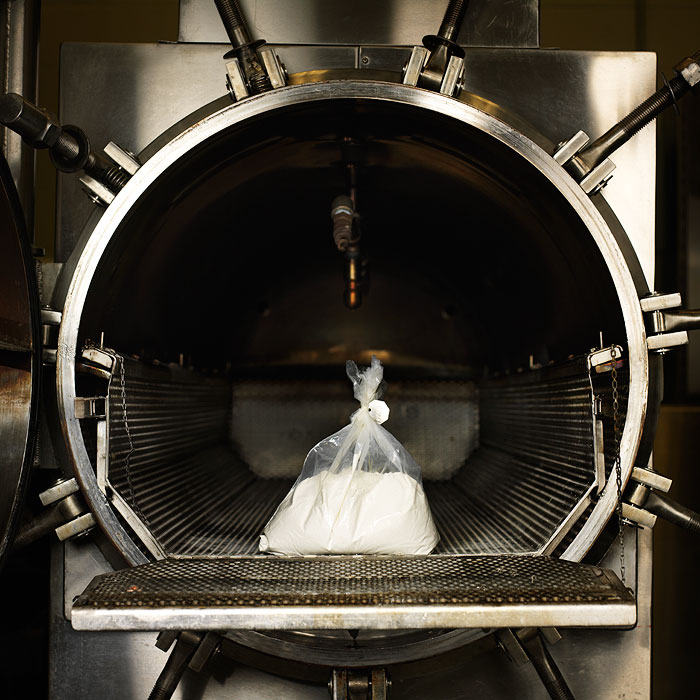Dying to Be Green? Try “Bio-Cremation”
Nicole Mordant, Reuters (December 1, 2009)
There’s a shiny new final disposition in town, attempting to gain ground on the green burial bandwagon: Resomation, developed in Scotland in 2007, also known as bio-cremation.
Cremation is consistently flogged for its high energy consumption and resulting pollutants. Bio-cremation, on the other hand, uses “less than a tenth of the amount of natural gas and a third of the electricity,” by means of a chemical process involving alkaline hydrolysis.
According to the Reuters article, all that remains is “some bone residue and a syrupy brown liquid that is flushed down the drain. The bones can be crushed and returned to the family as with cremation.”
This last bit seems to be the only real relation to cremation: loved ones receive a packet of bone fragments which people may bury, memorialize on the mantle, put into tattoos, shoot into space, fire into diamonds, et cetera.
Wait, did that say the syrupy brown liquid of death is flushed down the drain? Indeed it does. Resomated bodies are as natural as any other human waste we routinely put through the pipes. Predictably, this makes some people uncomfortable, such as Catholics, who thwarted a move to introduce bio-cremation in New York a couple years ago, citing it “not a respectful way to dispose of human remains.”
Fair enough, though just as arguably, cremation or burial are not respectful ways of treating the earth. Given the significant energy savings and pollution avoidance, environmentalism may very well prevail — plus, you can retrieve and recycle metal parts, like hip and knee replacements. I just hope they can settle on a name that isn’t obtuse, misleading or trademarked.

2 replies on “Putting Death Down the Drain”
As a followup to the Catholic sentiment on bio-cremation, I just found this: http://www.catholicregister.org/content/view/3642/
In it, bio-cremation is described as “morally neutral” and probably not a bad idea, given the environmental aspects:
Also of interest, regarding Catholic views on cremation:
aquamation seems like a great name, a group of students at our school noticed that aqua means water used as a solvent in pharmacuetical terms. So
AQUAMATION